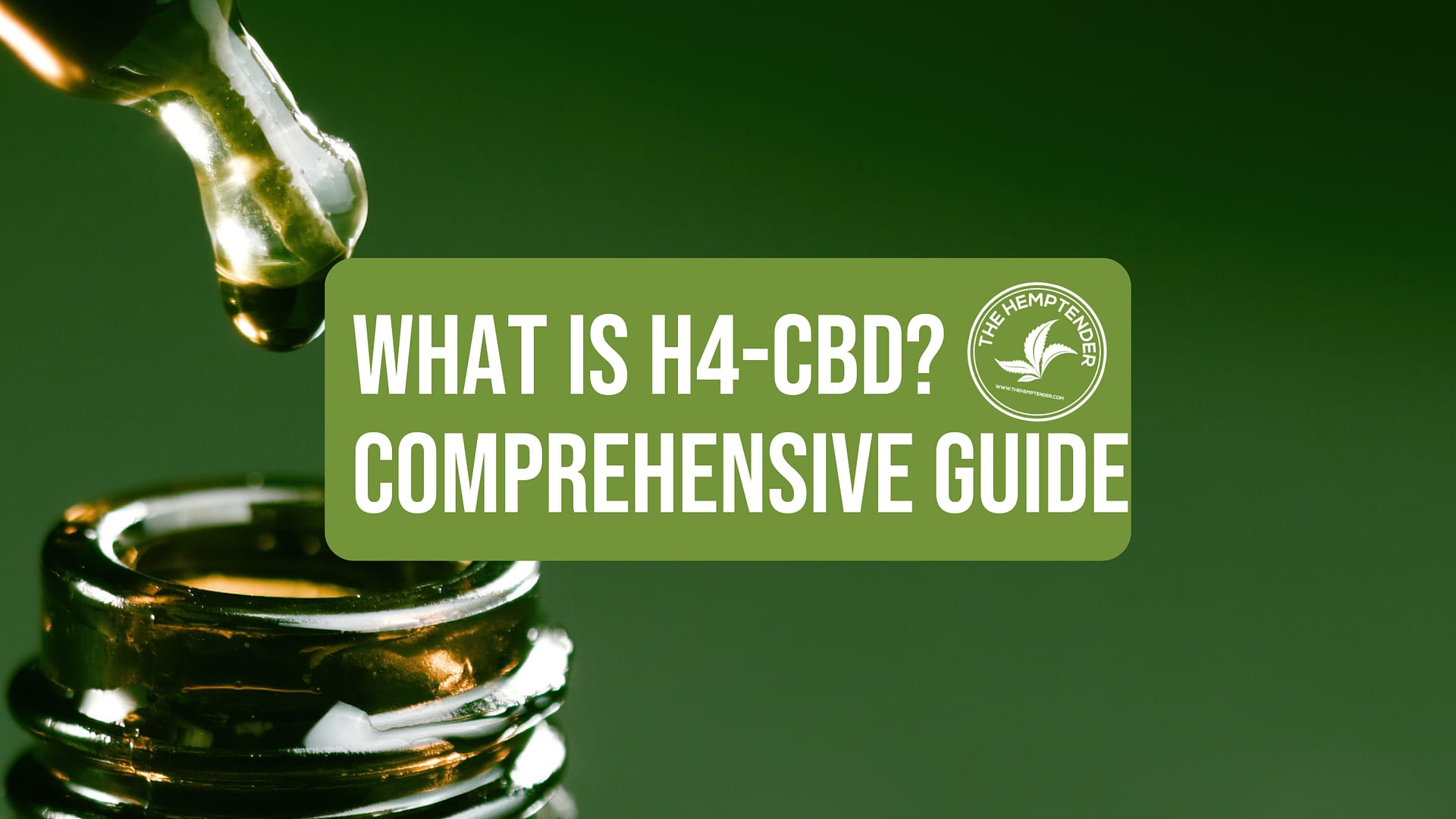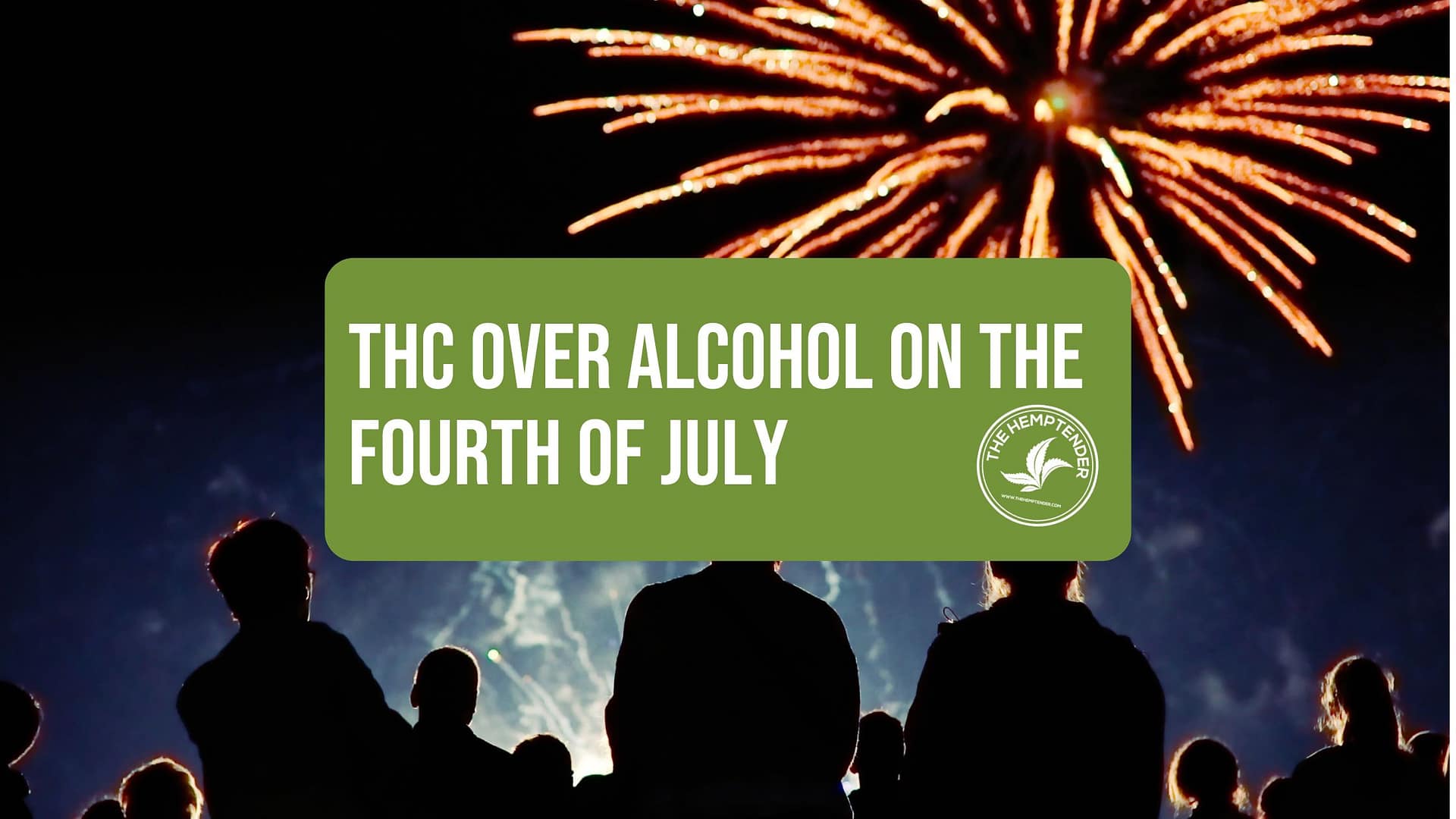What is H4CBD? Read the Comprehensive Guide

H4-CBD is a relatively new and exotic cannabinoid that has generated a huge buzz in the cannabis industry. Although it has been known to scientists since the 1940s, it’s only recently gained mainstream attention. Some sources claim that H4CBD is up to 100 times more potent than CBD and shares similarities with THC, though further study is still needed to know for sure. In this comprehensive guide, let’s take a look into every aspect of H4CBD, including its effects, chemical structure, user reviews, comparisons to CBD and THC, and a few available products.
What is H4CBD?
H4CBD, also known as Tetrahydrocannabidiol, H4-CBD, THD, or hydrogenated CBD, is a synthetic cannabinoid. It is synthesized by adding four hydrogen atoms to CBD molecules, which converts some of the double bonds into single bonds. This chemical process transforms CBD into a theoretically more potent compound known as H4CBD. It’s important to note that H4CBD is a distinct compound, not merely a CBD variation.
How does H4-CBD Work?
The truth is, we don’t know a lot about H4CBD. The gist of what we know is limited to a single study conducted in 2006. This research revealed that H4CBD has a notable affinity for CB1 endocannabinoid receptors in the brain, similar to THC. This binding to CB1 receptors has led to speculation about the compound’s psychoactive effects. Generally, people who use H4CBD often describe the experience as resembling a 2:1 CBD-to-THC product, where CBD’s therapeutic effects are predominant, but a subtle sense of intoxication and mild euphoria akin to low THC doses is also present.
How is H4-CBD made?
H4CBD is created through a process known as hydrogenation, which involves adding four hydrogen atoms to the limonene part of CBD’s molecule, converting double bonds into single bonds. This alteration changes the molecule’s shape and properties, making H4CBD technically a synthetic cannabinoid. It’s worth mentioning that H4CBD and HHC share a similar hydrogenation process, but H4CBD starts with hemp-derived CBD instead of THC.
H4CBD vs. CBD:
While both H4CBD and CBD originate from hemp, they are not identical molecules. CBD is a naturally occurring cannabinoid, while H4CBD undergoes a synthetic chemical process, which makes it potentially more potent. The 2006 study found that H4CBD binds to CB1 receptors in the brain with 100 times greater strength than regular CBD. That said, it’s unclear whether or not it still performs like traditional CBD, which evidence suggests plays a significant role in inflammation by working with CB2 receptors and the ECS.
H4-CBD vs. Delta-9 THC:
Despite its increased binding affinity compared to CBD, H4CBD’s interaction with CB1 receptors falls significantly short of THC. People who have tried H4CBD and the evidence from a 2017 research review suggest that H4CBD’s effects are more akin to other minor cannabinoids and low-potency THC alternatives on the market.
That said, H4CBD may still cause you to feel high, unlike traditional CBD but similar to THC. While it doesn’t feel as potent, anecdotal evidence suggests that it does offer a very mild euphoric high feeling.
Does H4CBD get you high?
H4CBD might impart a mild intoxicating effect, but it doesn’t necessarily make you feel high. It also doesn’t deliver the typical effects typically associated with CBD either. Based on limited early research and anecdotal reports, using H4CBD seems to create an experience akin to consuming a substantial amount of CBD alongside a minimal dose of THC. As those familiar with combining these two cannabinoids might attest, CBD tends to temper the effects of THC without entirely nullifying them.
How potent is H4-CBD?
H4CBD, although not producing the same psychotropic effects as THC, is still a little more psychoactive compared to CBD. Users’ feedback indicates that it may offer approximately three times the potency of CBD. While some sources claim it to be 100 times more effective than CBD, it’s crucial to note that CBD’s potency at CB1 receptors is minimal. More or less, it’s still up in the air, and scientists don’t know enough about H4CBD to say for certain.
Is H4CBD Legal?
The legality of hemp-derived synthetic cannabinoids like H4CBD remains in a legal gray area. While CBD and other hemp-derived cannabinoids are federally legal under the 2018 Farm Bill, certain states have enacted laws restricting or banning such cannabinoids due to their synthetic production methods and psychoactive properties. Therefore, the legal status of hydrogenated cannabinoids like H4CBD may vary by location. Laws are changing all the time, so it’s important to always double check the laws in your area before using or purchasing H4CBD.
H4CBD Availability and Products
H4-CBD is an emerging exotic cannabinoid in the hemp industry. The initial availability of H4CBD products came from brands like CannaAid, offering H4CBD vapes and gummies. As demand for H4CBD continues to grow, more brands are expected to develop a wider range of products. Currently, online H4CBD products include distillates, vape cartridges, tinctures, oils, concentrates, gummies, and edibles.
Will H4CBD cause you to fail a drug test?
Simply put, there’s not enough information out there to say for sure. Since H4CBD hasn’t been studied extensively, it’s unclear whether or not its metabolites will flag you positive for a drug test. If you’re worried about failing a drug test, it’s best to avoid cannabinoids including H4-CBD altogether. The hemp industry isn’t regulated well enough to know for sure, and it makes it possible for a lot of unscrupulous vendors to sell mislabeled products, potentially containing higher-than-claimed THC levels. For those subject to drug testing, it’s crucial to prioritize sourcing from reputable brands with transparent testing practices to ensure both purity and cannabinoid accuracy. For now, you’ll want to avoid H4CBD if you’re worried about drug testing.
The Bottom Line
While CBD remains a valuable cannabinoid for its potential therapeutic effects, H4CBD might offer a more potent alternative with mild psychoactive effects. However, further research is still needed, and we’d always suggest you err on the side of caution when exploring synthetic cannabinoids. If you’re interested, make sure you do your research and take care to only purchase H4CBD products from reputable brands that provide full-panel lab test results and certificates of analysis (COA) to ensure safety and consistency— like The Hemptender.



